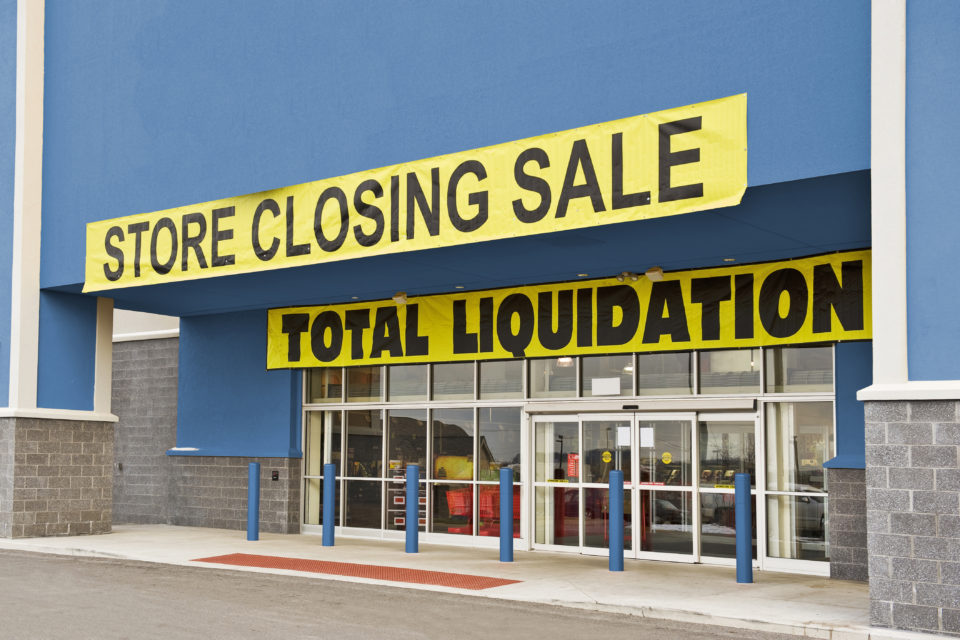Reaching Successful Economic Development in the Community

This article was originally published in the Tribune-Star on May 12, 2018.
The building goes dark, the manager locks the door for the last time, brown paper cascades down windows that once held signs of sales and promotions. Big box retailers such as Toys R Us, H.H. Gregg, Circuit City and many others are either shutting their doors or adjusting the method in which they conduct business.
Economic development organizations and the directors that run these organizations often state that they are not the reason these businesses have decided to leave the community. Is that truly the case? If we analyze data and challenges across the country a variety of items come to light. Prior to addressing some of these challenges from a national perspective, let us first look at what is the definition of economic development.
According to Wikipedia, economic development is the process by which a nation improves the economic, political, and social well-being of its people. Do you feel this is the case in your community? Economic development is a collaborative effort of all stakeholders and not just one office. Attraction of new businesses of any size is vital. Economic development professionals should not concentrate solely on large companies like General Motors and Amazon, they should also attract smaller companies as well. The smaller companies are the growth and retention components of our communities.
Imagine a stool — a stool has three legs. Economic development organizations MUST be effectively engaged in attraction, retention and expansion of all firms regardless of size. Again, more often than not economic development organizations concentrate on the large firms and neglect the small firms. These small firms provide culture, more growth in jobs, and higher paid skill sets for the region. I realize this is not happening in all organizations and communities but also recognize it does happen.
You may be asking where this article is going. As we look around our country and I travel through Indiana, I have recognized that so many communities believe that attracting mediocre companies paying nominal wages is considered success. This is not success. Let me state that again, this is not success. As our workforce continues to dwindle, skill sets are adjusted to meet environmental changes and business climates must accommodate consumer needs. It is important for economic development professionals to truly understand what companies and their communities need to be successful. This also include how to market communites, assets, and resources.
How can a family or even a single individual thrive on nominal wage rate? Yet we see it across the state all the time, companies attracted with TIF districts, tax incentives and bringing in a specific number of jobs paying $10 – $20 hour.
If we want our communities to thrive and grow in Indiana, specific steps can be taken. First, economic development organizations should realize that attraction, retention and expansion are equally important and one does not outweigh the other. Creative and innovative strategies should be developed for communities to embrace and engage existing companies.
Second, involving a variety of stakeholders is very important. Just the other day while facilitating a leadership panel a local economic development board of directors was composed of all male, all greater than 50 years of age and all Caucasian individuals. How does that lack of diversity provide a supportive environment for budding businesses and growth of unique business culture? Consider how to diversify boards, engagements, and representations throughout the community. What benefits and impact would this have?
And finally, understand and maybe a fact to drive home again and again, is that the large companies that employ hundreds of people are not relocating to many communities in Indiana. On average, there are only about handful of large companies annually looking to locate in the United States. Look at this from a supply and demand perspective. If you have five companies that employ 400 employees and they want to relocate or start a branch in the United States, it is great news. Now consider the demand behind such a relocation. You have virtually every regional economic development organization or local economic development organization working with site selector groups and contracting firms to ensure they are considered for the top of the prospect list.
Perhaps one may increase their community odds in playing the lottery, as the chances of landing a stage four company with hundreds of employees are virtually non-existent by the time you consider all the tax incentives, employees skills sets, management, housing, educational needs and other items the company will demand from the community.
So before you consider how to improve your local economy, ask yourself, your economic development organization office and key stakeholders what their strategic plan is for existing businesses regarding growth and development in addition to the attraction component. Education is key, we need to be educated and informed as community members.
Heather Strohm is a community development regional educator for the Southwest Region of Purdue University Extension who regularly contributes a Business Cents column for the Tribune-Star. She can be reached at strohmh@purdue.edu.



